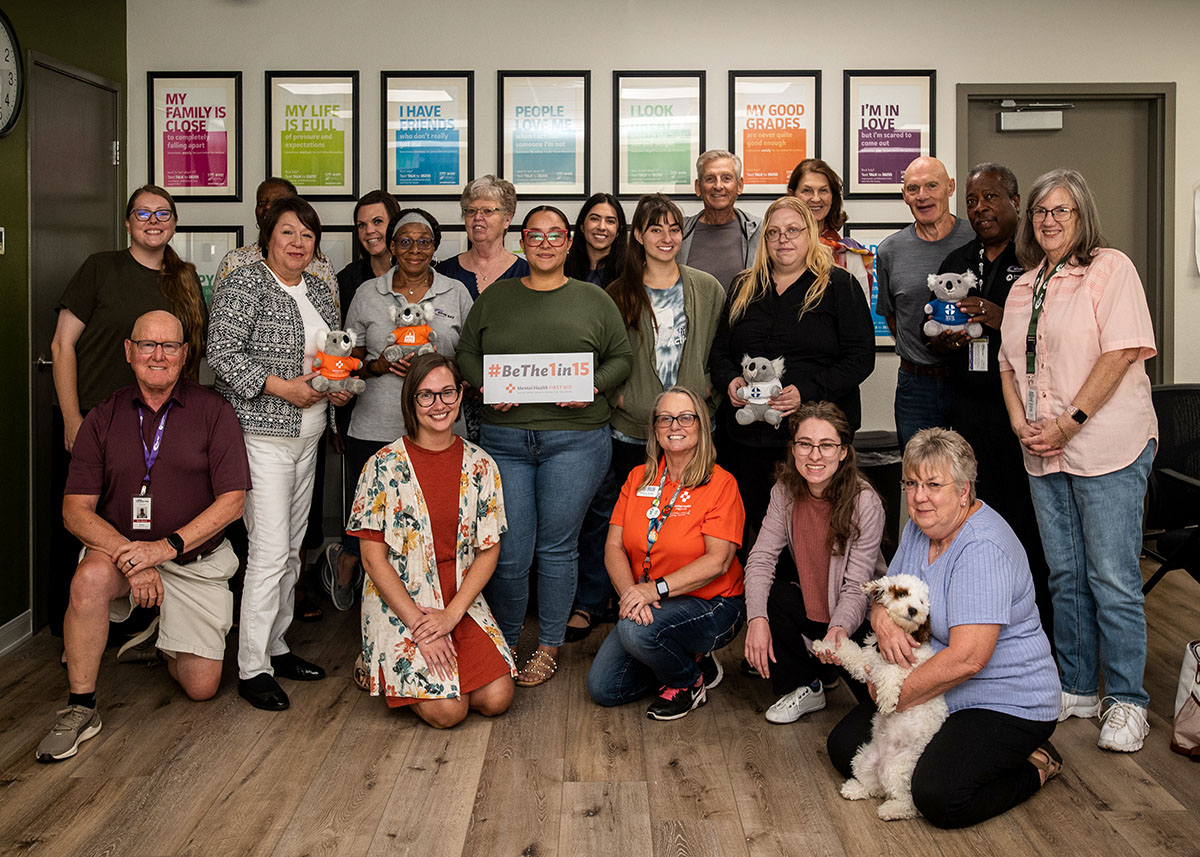About us
We’re local. We’re national. It’s complicated.
NAMI Colorado Springs is an affiliate of the National Alliance on Mental Illness, the United States’ largest grassroots organization dedicated to improving the lives of people with mental illness. As such, we enjoy access to nationally developed and vetted programs and educational materials while operating as a fully independent and locally run 501c3 nonprofit organization.

Power to the peers
Recovery thrives in community. That’s why our support groups, education programs, and advocacy work are all led by people who have faced mental health challenges themselves or supported loved ones through their journeys. This peer-to-peer approach creates understanding that goes beyond sympathy to true empathy, fostering genuine connections and practical support that makes a real difference in people’s lives.
Our history
1983
Mothers unite
The Pikes Peak Alliance for the Mentally Ill is established by Stella Colby and Julie Foster, two mothers with children with mental illness. It begins as a group of parents like them, meeting at kitchen tables and sharing resources and emotional support as they work to reintegrate their children into their homes and families. They educate themselves and community members about mental illness, cope with the associated stigma, advocate for their loved ones, and seek more effective and accessible services.
1999
The NAMI network
After years of offering informal support, networking and information sharing, the local, all-volunteer NAMI affiliate in 1999 adopts curricula developed by NAMI national. What begins with the flagship Family-to-Family course slowly expands into other programming in the years to follow.
2012
Expanding our reach
In 2012, NAMI Colorado Springs’ board of directors hires Lori Jarvis as the organization’s first-ever paid executive director. Under Lori’s leadership, NAMI multiplies its programming options, serving everyone from teens and parents to health care providers and first responders. The organization leads community-wide awareness initiatives and builds a corps of 100-plus trained volunteers.
Today & beyond
Adapting to community needs
True to our history, NAMI keeps evolving to meet our community’s changing needs. We’ve recently expanded our support groups to reach previously underserved populations, strengthened our youth mental health initiatives, and built deeper partnerships with healthcare providers and community organizations. While our methods may adapt, our core mission remains unchanged: ensuring no one faces mental health challenges alone.